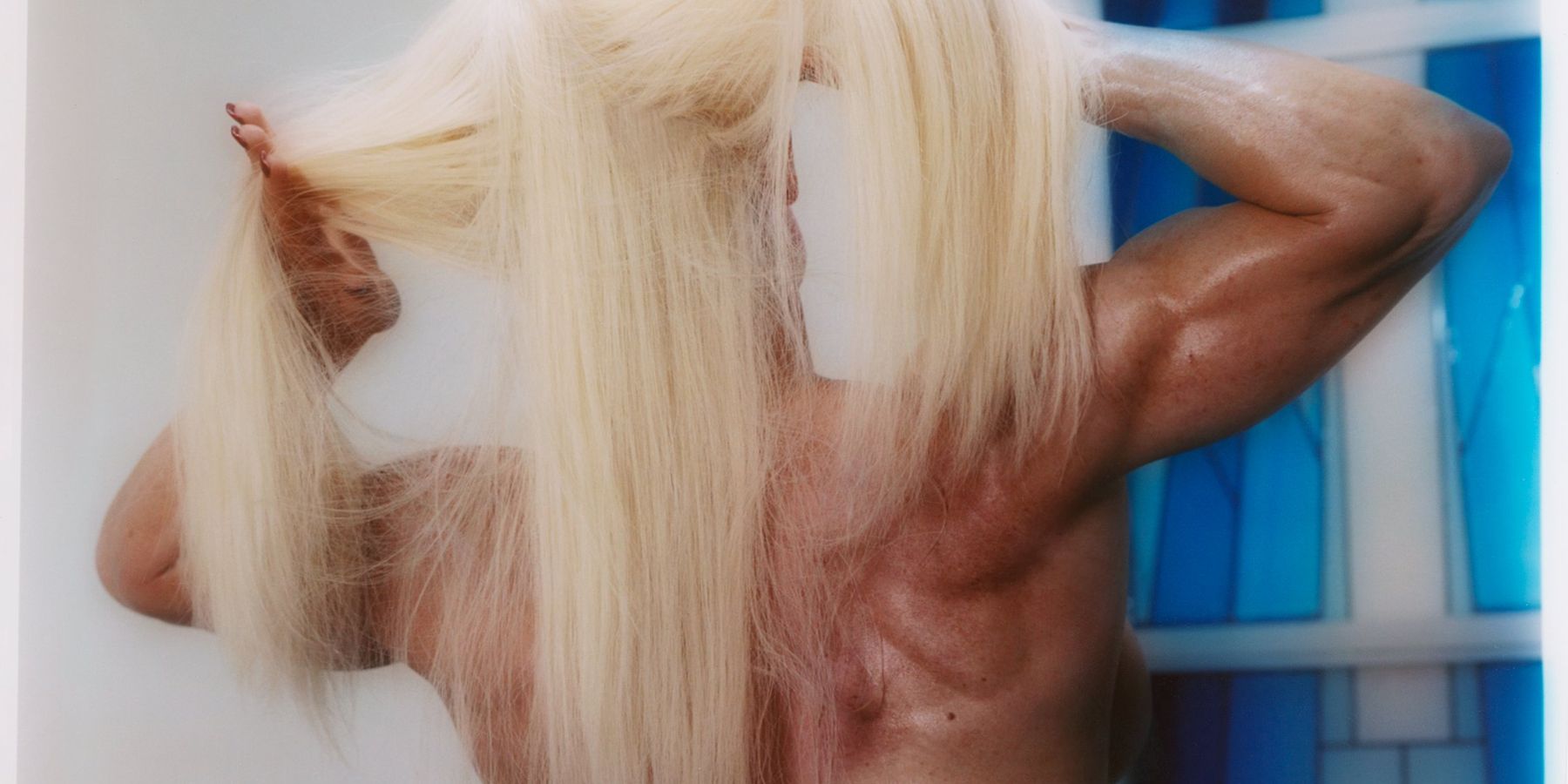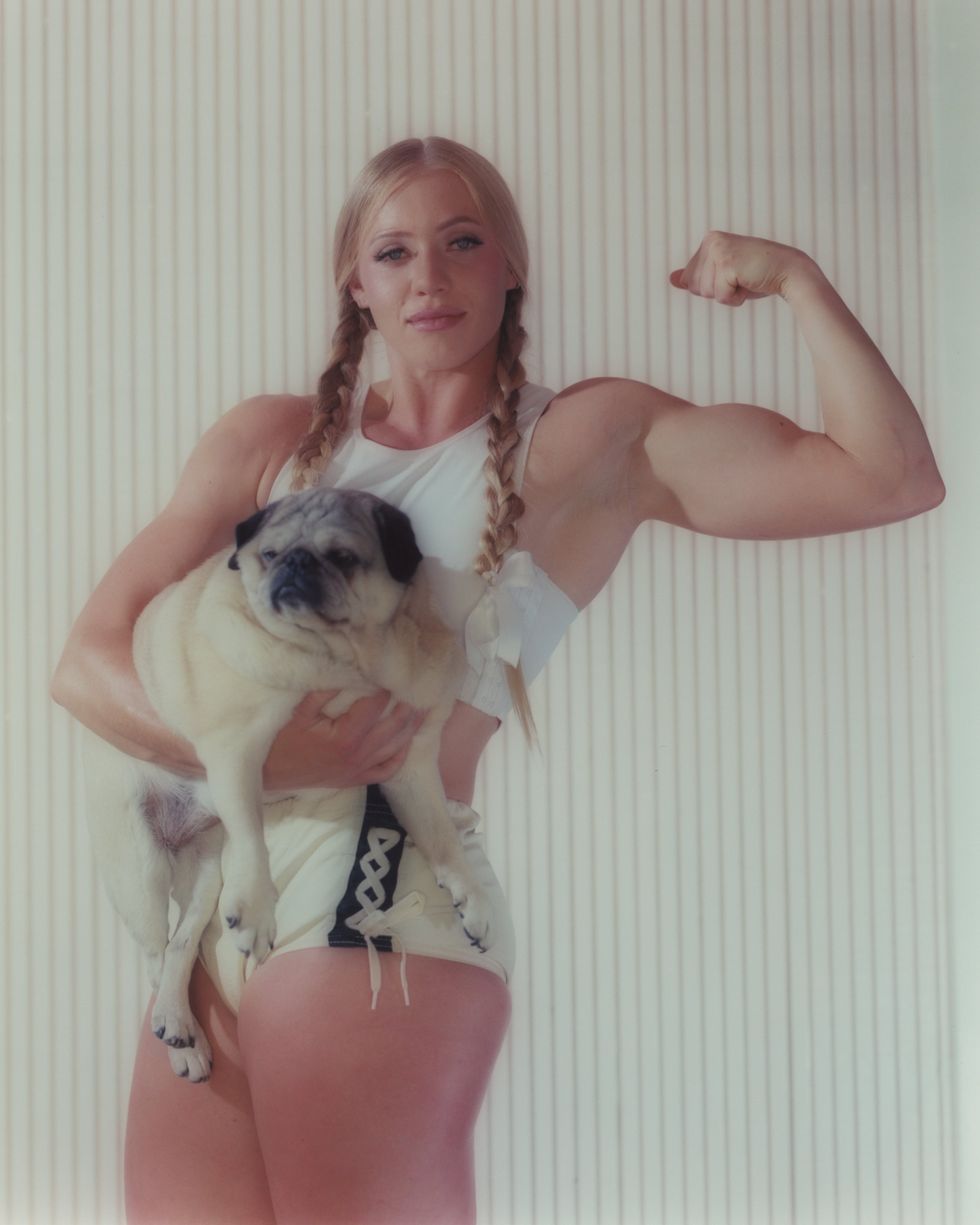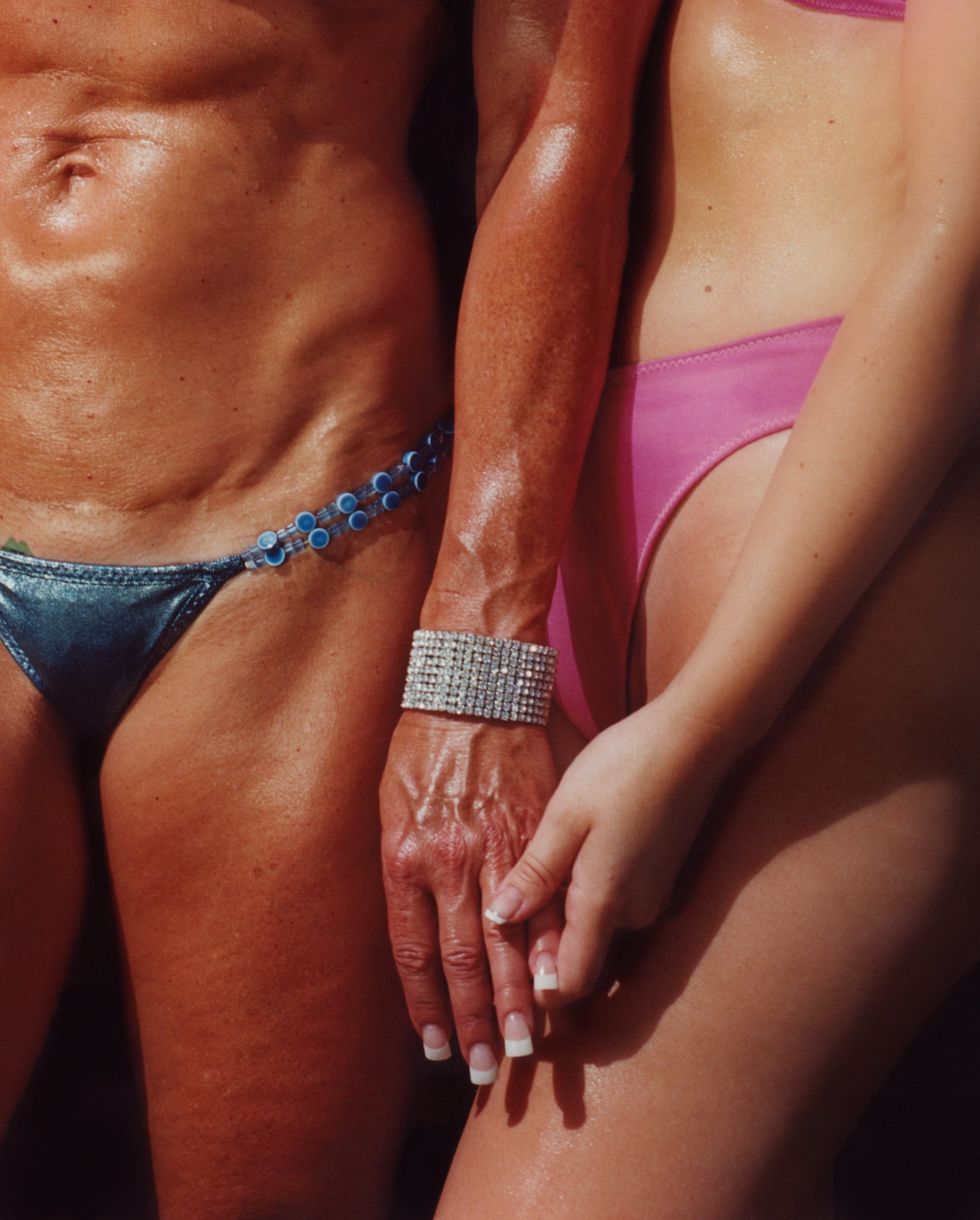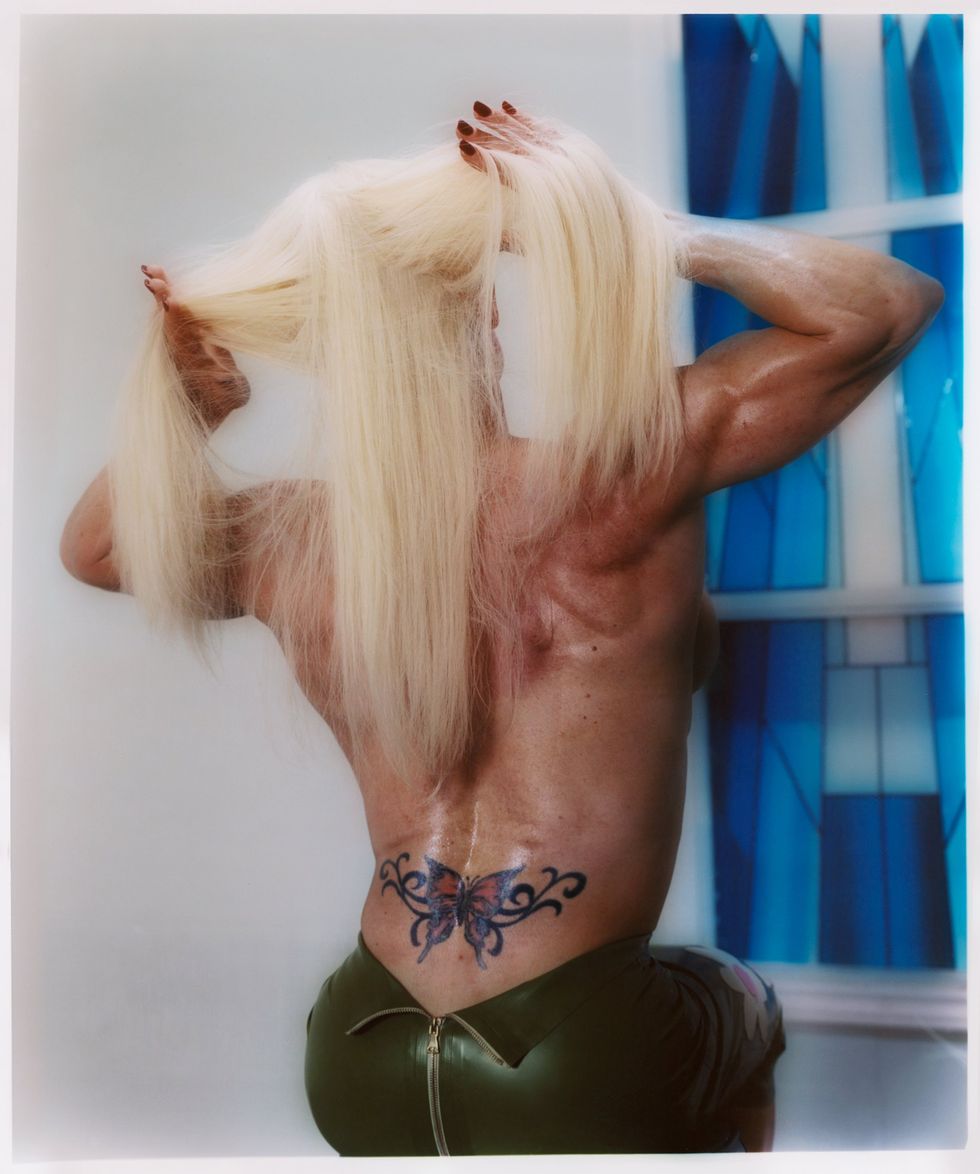
New Yorkers have always appreciated a double take; to be appraised by onlookers on a morning commute is one of the highest silent compliments a person here can ask for. We’ve all felt the endorphins of turning a head and knowing that today we successfully walked the line between unquestionable gorgeousness and astonishing strangeness.
When admiring others pushing the boundaries between the beautiful and the ugly, we’ve all vowed to be less conventional ourselves and step further outside the box that mainstream culture confines us inside. For the people-watchers of New York, a new exhibition of beautifully confounding women is up on display, brought to you through the lens of rising Los Angelean photographer Kate Biel.
Barbella, Biel’s first solo exhibition, is a compilation of her musings on female bodybuilders over the last four years, which first caught her interest during a period of creative drought. In 2019, a friend of Biel’s mentioned her mom was a bodybuilder, and, after bridging the distance between Arizona and LA to shoot together, Biel's relationship with the female bodybuilding community was forged. At a time when Biel was struggling with the destructive effects of heartbreak, photographing these formidable women became a vital source of inspiration and empowerment for her. Rather than shrinking away from taking up space, as many women are compelled to do, her subjects reveled in the presumption of being “worshipped.” Biel notes: “Not a single one of them appeared to lack confidence... I see them as a physical encapsulation of self love.”

Inside the exhibit, the minimalist, coolly lit curation allows the images to speak for themselves. The collection of photographs shows bodybuilders poised against the familiar but unnerving backdrop of classic American suburbia. Their painted faces feign taunting or triumphant expressions, depending on how you see them, pushing forward the idea of mythologized strength in a real setting.
“The suburban environments make it feel more normalized,” Biel tells PAPER. “If I photographed these subjects in the wilderness it would suggest they belong on the outskirts. Carl Jung described how the symbolism of homes in our dreams serves as insight to what we are feeling subconsciously; they can be a source of both comfort and anxiety.”
Biel explains that the makeup for the shoot was inspired by war paint and masks worn by luchadores for their wrestling matches in Mexico. “This is male pageantry, a means of intimidation, to give their opponent the idea that they could channel otherworldly powers,” she says. “I chose the aesthetic to encourage the subject to access this power in front of the camera.”

This reconfiguration of standards, self-image and power structures is a challenge Biel has resolved to accelerate through her work in the media: "Just as we’ve been taught to look to the media for answers, we also look to it for approval. I think the media that exists has to be dismantled and rebuilt to have less influence on our self worth.”
It’s true that feminine beauty standards have always been in flux, and the male-dominated media, which dictates the ways in which female bodies are deemed acceptable and beautiful, plays a huge role in this. Nestled atop this complex history, Biel’s mission as an artist is to present to viewers the infinite possibilities of feminine range and to demonstrate their power of attraction.
“I’ve always sought after some kind of 'ugliness' in my work. When I say ugliness I don’t mean unattractive or revolting but instead mean the opposite of beauty,” Biel says. “I aim to explore the common ground shared among women and monsters and the humanity found in between. They are outcasts and alienated in their otherness, the way their bodies transgress and fluctuate is equivalent to body horror, and ultimately they are threats to power. Their very existence is an explosive disregard of the standards for harmony and order.”
Biel notes that some men have approached her asking if the women in the series are transgender or in drag. “It doesn’t really matter whether they are or aren’t,” she says, “but the fact that the strength of their bodies require investigation on their sex frankly feels harmful and all the more necessary to normalize.”
If you’ve ever wondered about the incredible possibilities of feminine beauty, Biel invites you to tickle your mind with this new context, delivered with love from the female gaze.
Barbella will be exhibiting at Blade Study in New York City until March 26.

Photos courtesy of Kate Biel
From Your Site Articles
- Mina Gerges Redefines Masculinity at Muscle Beach Venice ›
- Bodybuilders Rode Electric Scooters For Vivienne Westwood ›
- Kiesza Wrestles Bodybuilder Kai Greene in New 'Mother' Video ›
Related Articles Around the Web